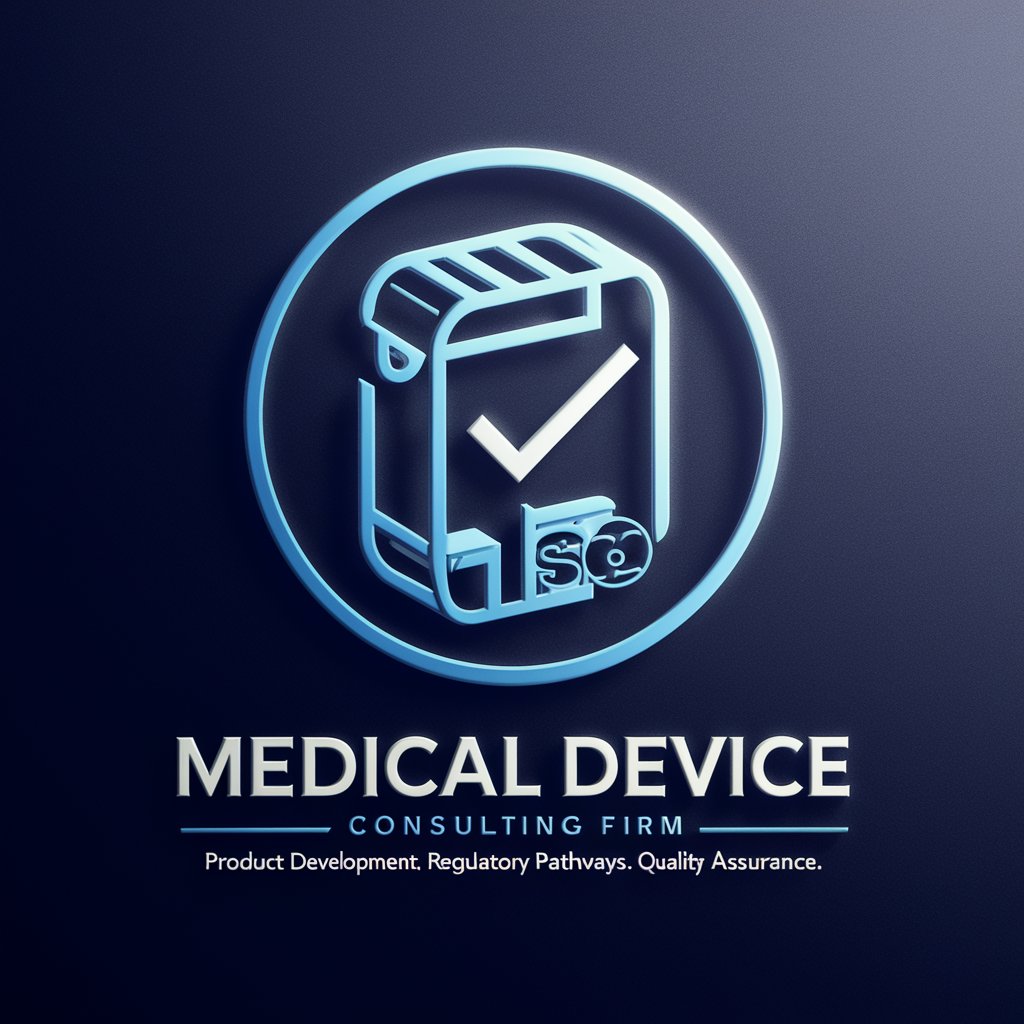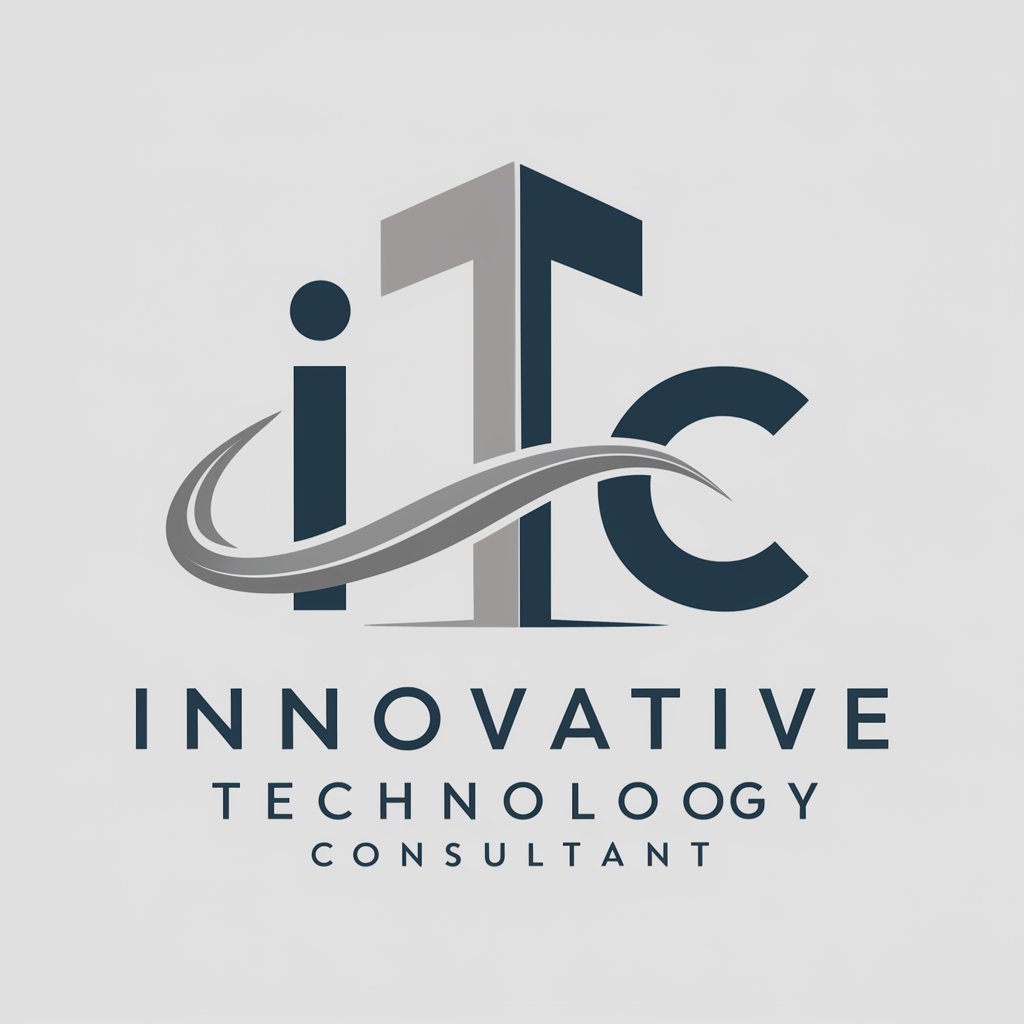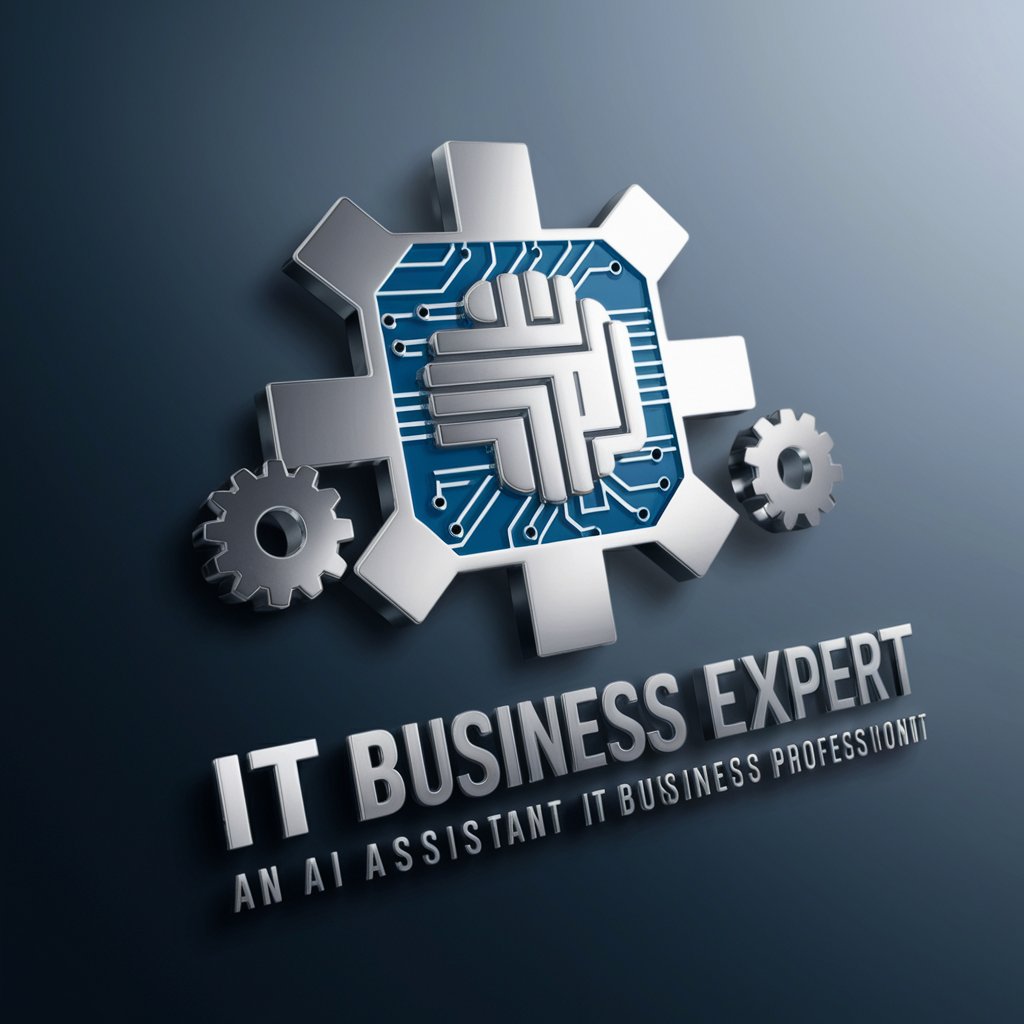
Information Technology Consultant - AI-powered IT consulting tool

Advises on IT solutions, evaluating and enhancing technology to align with business objectives.
AI-powered advice for IT solutions.
Optimize System Performance
Revise Project Strategies
Improve Adoption Techniques
Analyze Innovation Impact
Get Embed Code
Introduction to the Role of an Information Technology Consultant
An Information Technology (IT) Consultant provides expert guidance to organizations on how to leverage technology to meet business objectives. This role involves analyzing a company's current IT systems, identifying areas for improvement, and implementing solutions that optimize efficiency, security, and scalability. IT consultants bridge the gap between business goals and technology by evaluating an organization's infrastructure, recommending hardware or software upgrades, developing long-term strategies, and overseeing implementation projects. For example, an IT consultant might work with a retail company struggling with outdated systems that affect sales and customer service. The consultant would assess the current point-of-sale (POS) systems, inventory management, and customer relationship tools. After evaluation, they could recommend cloud-based solutions, integrate e-commerce platforms, and automate inventory controls, ensuring a seamless operation across physical and online stores. In this case, the IT consultant helps align technology investments with business goals, ensuring growth, efficiency, and cost savings. Powered by ChatGPT-4o。

Core Functions of an IT Consultant
Technology System Assessment
Example
An IT consultant assesses an organization's existing technology infrastructure, including software, hardware, and networks.
Scenario
A healthcare organization with aging servers and software that no longer supports modern data security standards seeks an IT consultant. The consultant reviews the systems, identifies vulnerabilities in patient data protection, and recommends a hybrid cloud model to improve data security and scalability while reducing overhead costs.
Technology Strategy Development
Example
The IT consultant helps clients develop long-term strategies for technology deployment based on current and future needs.
Scenario
A growing fintech startup needs a technology roadmap to ensure scalability as it attracts more customers. The IT consultant develops a strategy that includes cloud migration, the implementation of DevOps practices, and selecting the right fintech tools to enhance transaction security and user experience.
Project Management
Example
Managing the deployment of new technologies, ensuring on-time and within-budget delivery while aligning with business goals.
Scenario
An e-commerce business wants to launch a new mobile app to improve customer engagement. The IT consultant oversees the project from selecting app developers to integrating the app with the backend CRM and payment systems. They ensure that the project meets milestones and is delivered on time with minimal disruption to operations.
Process Automation and Optimization
Example
Consultants help automate manual processes using tools like RPA (Robotic Process Automation) and AI-driven solutions.
Scenario
A manufacturing company relies heavily on manual data entry for tracking production stages, leading to errors and delays. The IT consultant proposes the implementation of RPA to automate these tasks, reducing errors by 90% and improving efficiency across the production line.
Cybersecurity Consulting
Example
Helping organizations safeguard their systems and data from cyber threats through risk assessments and the implementation of security protocols.
Scenario
A financial services firm is experiencing frequent phishing attempts and data breaches. An IT consultant is brought in to perform a cybersecurity audit, implement multi-factor authentication, and establish real-time threat monitoring systems, reducing the firm’s exposure to data breaches.
Ideal Users of IT Consultant Services
Small and Medium-sized Enterprises (SMEs)
SMEs often lack the in-house IT expertise needed to make strategic technology decisions. IT consultants help these businesses by offering scalable, cost-effective solutions that enhance efficiency, reduce operating costs, and improve customer experience. For instance, an SME looking to digitize their supply chain can greatly benefit from an IT consultant who can select and implement ERP solutions tailored to their size and growth potential.
Large Enterprises
Larger organizations may already have robust IT departments but require specialized expertise for specific projects like digital transformation, cloud migration, or cybersecurity. IT consultants work alongside internal teams to offer expertise in cutting-edge technologies and ensure seamless integration into existing infrastructures. For example, a multinational corporation undergoing a global cloud migration project would leverage an IT consultant to ensure compliance with various regional data regulations while optimizing performance.
Government Agencies
Government institutions benefit from IT consulting services when modernizing legacy systems, improving cybersecurity, or implementing public-facing platforms. IT consultants can ensure that solutions comply with strict regulatory requirements and address the need for robust security, reliability, and scalability. For instance, a national government agency seeking to digitize its public services portal would utilize an IT consultant to ensure that the solution is secure, scalable, and user-friendly, allowing for improved citizen engagement.
Non-Profit Organizations
Non-profits often work with limited budgets and require cost-effective solutions to manage their operations and maximize impact. IT consultants provide tailored technology solutions such as donor management systems, cloud-based tools for collaboration, and cybersecurity protocols to protect sensitive donor data. A consultant might help a non-profit transition from outdated, expensive on-premise systems to cloud solutions that allow more efficient collaboration and fundraising while lowering costs.
Startups
Startups typically need guidance on technology strategy, scalability, and the most efficient tools to implement. IT consultants help startups create infrastructure that supports growth, innovation, and operational efficiency. For example, a tech startup launching a SaaS platform would benefit from an IT consultant to guide them on cloud infrastructure, development methodologies, and security best practices to ensure a smooth product launch.

How to Use Information Technology Consultant
1
Visit yeschat.ai for a free trial without login, no need for ChatGPT Plus. Simply access the tool directly to start exploring its features.
2
Familiarize yourself with the interface: Upon entering, review the dashboard and main features. This platform offers AI-powered responses to assist in IT consulting, systems analysis, and more.
3
Input your queries: Whether you're analyzing systems, optimizing infrastructure, or exploring emerging technologies, enter specific questions or project details to receive tailored advice.
4
Leverage collaboration tools: Use integrated tools like project management frameworks (e.g., Jira, Trello) for optimizing IT project execution and strategy planning.
5
Iterate and refine: Regularly engage with the assistant to continuously fine-tune solutions and ensure alignment with evolving business needs and technological trends.
Try other advanced and practical GPTs
리서치 도우미 (Research Assistant) GPT
AI-driven research insights at your fingertips.

Guided [Audio!] Meditations and Mindfulness
AI-powered personalized meditation for mindfulness.
![Guided [Audio!] Meditations and Mindfulness](https://files.oaiusercontent.com/file-GK6suvFlvoDDq25DW4XWNN8q?se=2124-04-25T20%3A37%3A44Z&sp=r&sv=2023-11-03&sr=b&rscc=max-age%3D1209600%2C%20immutable&rscd=attachment%3B%20filename%3D37da8be9-305d-4a38-a8a4-6a670788be8d%2520copy.jpg&sig=PjBeEf1zMKHDj4vxUM/ZCKRVlji6VETy1SVN/vixtas%3D)
Bootstrap Pro
AI-powered Bootstrap development made easy.

Kai Friend & Companion [Voice Write Photo Video]
AI-Powered Friend for Talk, Tasks, and Creativity
![Kai Friend & Companion [Voice Write Photo Video]](https://files.oaiusercontent.com/file-xUcHzxyVt7WaDISWySLMALW6?se=2124-04-20T23%3A16%3A52Z&sp=r&sv=2023-11-03&sr=b&rscc=max-age%3D1209600%2C%20immutable&rscd=attachment%3B%20filename%3D3%2520123st%252Csmall%252C507x507-pad%252C600x600%252Cf8f8f8%2520copy%25202.jpg&sig=s2OBSQcL2X9YBHTDSwudcncugkWrMhleHmhIolSGGdM%3D)
soft-chandler
AI-powered tool for comprehensive tasks

のGPT-4o Video 🌟🌟🌟🌟🌟
Create videos effortlessly with AI power

Seedling Content Method
AI-driven content creation for your brand

FastAPI
AI-powered, lightning-fast API framework

GPT Periodista
AI-powered tool for professional journalism
论文AIGC降重
AI-powered rephrasing for academic papers.

Unreal Copilot
AI-powered copilot for Unreal Engine mastery

Unity Copilot
AI-powered support for Unity developers

Common Questions about Information Technology Consultant
What does Information Technology Consultant specialize in?
Information Technology Consultant provides expert guidance on IT solutions, including system analysis, project management, and technology implementations, tailored to align with business objectives.
Can the tool assist in managing IT projects?
Yes, the tool offers advice on project management methodologies and can integrate with tools like Jira and Trello to optimize workflow and ensure project success.
How can Information Technology Consultant support my IT infrastructure?
The tool can assess current systems, suggest improvements for infrastructure efficiency, and recommend emerging technologies to enhance scalability, security, and performance.
Is Information Technology Consultant suitable for small businesses?
Absolutely. It caters to businesses of all sizes, offering scalable solutions for small to large enterprises. Whether streamlining workflows or implementing new technology, it ensures cost-effective solutions.
What industries can benefit from using this tool?
Industries such as finance, healthcare, education, and retail can greatly benefit, as it provides cross-industry solutions that can adapt to specific IT needs and regulatory requirements.






